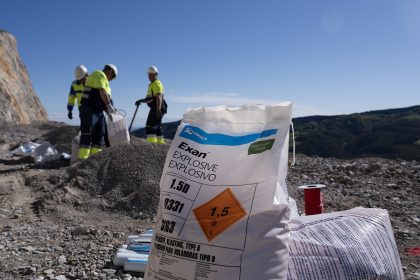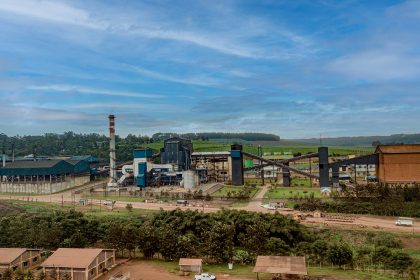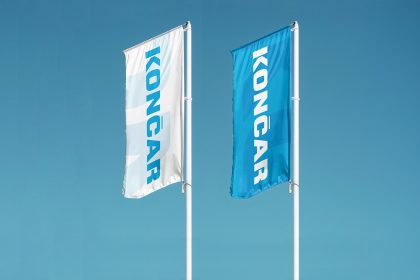We uncover Sustainability Summit Africa, where procurement and supply chain professionals are convening to drive environmental and socio-economic growth.
BEST PRACTICE IN PROCUREMENT
Sustainable procurement practices are gaining momentum.
Procurement, through the implementation of more sustainable buying and sourcing decisions, is a critical, powerful lever for businesses to protect and grow long-term environmental and socio-economic value not only for themselves, but also for their supply chain partners and the communities in which they operate.
With a heightened understanding that sustainable procurement is about ‘doing good business’, it was against this backdrop that the first Sustainability Summit Africa (SSA) was launched in 2021.
SSA, hosted by Smart Procurement World, provides key insights into the drivers, current practices, and the future of sustainable procurement with a specific focus on Africa, bringing together thought leaders to define the business case and the roadmap ahead.
Following on from the enormous success of last year’s inaugural SSA, Africa’s first-ever continent-wide sustainability conference, the online conference is returning for 2022, taking place on the 11th and 12th of May.
The question that remains on the minds of many business leaders is whether sustainable procurement and supply chains are a reality for Africa, particularly as the continent navigates the COVID-19 pandemic.
In this regard, SSA 2022 is a must-attend, not-to-be-missed gathering for decision-makers and organisations striving to advance their implementation of sustainable procurement strategies.
How should sustainable sourcing be managed in cross-border procurement? What are the threats and opportunities for public sector organisations and stakeholders? These are just some of the questions and issues that a host of renowned local and international speakers featured at SSA 2022 will deliver their valuable views on.
VALUE CREATION
There is a sustainability knowledge gap that is preventing many firms from making meaningful progress and delivering real value through their sustainability programmes.
Delegates at SSA 2022 can expect to gain an understanding of how to position the value of sustainable business practices in their organisations, and the role they can play.
The event will explore new ways to engage suppliers and adopt key performance indicators for sustainable procurement practice, as well as the professional skills needed to reap the benefits of such efforts. Sustainability is no longer a mere box-ticking exercise, for companies are realising that sustainable business practices and supply chains can lead to real, tangible business value.
Indeed, the World Economic Forum (WEF) asserts that value creation from sustainable procurement practices can raise revenue by up to 20 percent, reduce supply chain costs by as much as 16 percent, and increase brand value by up to 30 percent.
SSA 2022 offers opportunities for benchmarking, as powerful presenters who come from a range of backgrounds, from retail to the mining industry, look at global best practices and their local relevance.
The summit’s opening keynote will enable delegates to benchmark their organisation’s sustainable procurement policies and practices, with Australia-based Carsten Primdal, a Chief Sustainability Advisory Officer and Global Advisory Board Leader, putting the spotlight on global best practices and their relevance in Africa. Primdal has assisted numerous global organisations to implement and manage sustainability programmes that create lasting value.
Sanjeev Raghubir, Group Sustainability Manager at Shoprite Holdings, the largest supermarket retailer on the African continent, is another of the event’s high-profile speakers, who will discuss the impact of environmental disasters on the retail sector and its supply chain, and how they can be mitigated.
Climate change, driven by greenhouse gas (GHG) emissions, is directly impacting retail businesses and their supply chains; SSA 2022 will examine this, as well as other critical issues, and provide companies with valuable information on how to manage their low carbon transition, in an urgent call to action to address their climate change risks and opportunities.
SUSTAINABLE SUPPLY CHAIN
Two-thirds of the average company’s environmental, social, and governance (ESG) footprint lies with suppliers, whilst some studies estimate that up to 90 percent of a firm’s sustainability impacts come from the supply chain.
According to a CDP 2019 Global Supply Chain report, meanwhile, a company’s supply chain on average contains 5.5 times as many GHG emissions as its own operations, driving many businesses to encourage and collaborate on better, more responsible practices with their suppliers and create shared values.
Managing sustainability in the supply chain and in procurement is therefore critical for overall business health and success, and procurement leaders have the power to make a substantial difference in their organisations’ sustainability.
However, many companies are hampered by a lack of in-house understanding of the importance of ESG issues within the supply chain, and by their suppliers’ limited comprehension of ESG considerations.
Becoming proficient in ESG can unlock efficiency, financial and reputational gains for a company. Additionally, ESG leaders can pass on their knowledge to suppliers to help them improve upon their own practices, reducing Scope 3 emissions and improving their social impact throughout the value chain.
Whilst the benefits are clear, the impact of sustainability programmes often hinges on choosing the right measures. When evaluating suppliers’ sustainability performance, for instance, factors to consider include energy usage, waste disposal, packaging materials, and more.
Under the theme of ‘The Road to Best Practice’, SSA 2022 is a vital gathering that will help to chart the best path for sustainable procurement in Africa.
































